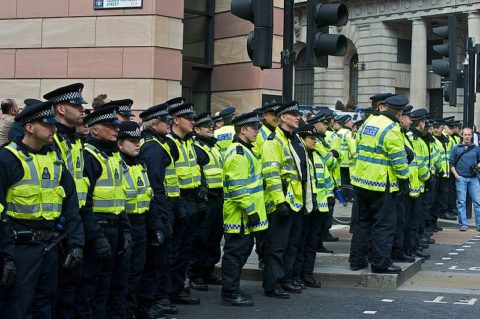In The Critic, Andrew Tettenborn believes it can be traced back to a change in the oath that new police constables take and the changed emphasis in police training to support that change:
Last week Insulate Britain magnanimously announced it would suspend its forcible road-blocking campaign. Apart from noting the impudence of this announcement (remember the IRA sanctimoniously calling its Christmas ceasefires, as if this were something we should be grateful for?), commentators on Twitter, the tabloid press and indeed many of the general public, have found another question troubling. Why, in the face of deliberate criminality aimed at discommoding ordinary people (most of whom will have been less well-off than many of the protesters), did the police hold back, at times apparently chatting with the obstructionists and threatening with arrest any exasperated driver who tried to take steps to remove them? We aren’t told, but we can make some educated guesses.
[…]
Nearly twenty years ago in 2002, there was a subtle, little-reported but very symbolic change in the oath sworn by all constables on appointment. Instead of the 19th century undertaking to serve the Queen “without fear or favour, malice or ill-will” in the course of keeping the peace and preventing crime, there is now a much more tendentious promise preceding the duty to keep the peace: namely, to act with “fairness, integrity, diligence and impartiality, upholding fundamental human rights and according equal respect to all people”. This requirement, thoroughly reflected as it is in police training today and imbued in policing culture, has two effects.
One is that all officers must keep at the front of their minds not only the law of the land but also two other guidelines: considerations of fairness and equality (whatever those mean), and human rights laws — something peculiarly complex and frequently opaque, even to lawyers. Human rights laws involve a subtlety well beyond the average constable called out to police a tense situation. Put yourself in the position of a policeman, faced with a choice whether to intervene in a case involving illegality and an intent to inconvenience people, but where no-one is actually engaging in violence — exactly the situation with Insulate Britain or Extinction Rebellion. You might well think that, if you wish to avoid future trouble and possible complaints of discrimination or unfairness, discretion and inaction would be the better part of valour.
Thanks to the pervasiveness of human rights culture, the constable’s traditional function of upholding the law ceases to be a black-and-white matter, and becomes a potential mire of conflicting duties. Even if the letter of the law says you should arrest a middle-aged protester or at least drag them off the M25 to prevent them obstructing it, there is always a possibility that someone somewhere will hold that this was contrary to their human rights. Once again, a cautious police officer intent on avoiding disciplinary hearings and a possible black mark, may well conclude that it is better to let sleeping dogs lie (at least for the moment), condone the illegality and avoid possible violence.
The police constable on the scene is extremely well advised to avoid doing anything that might possibly be construed as infringing on the human rights of everyone at the scene, for fear of becoming the scapegoat if clever lawyers convince a judge or jury that the police acted contrary to their revised oath.




